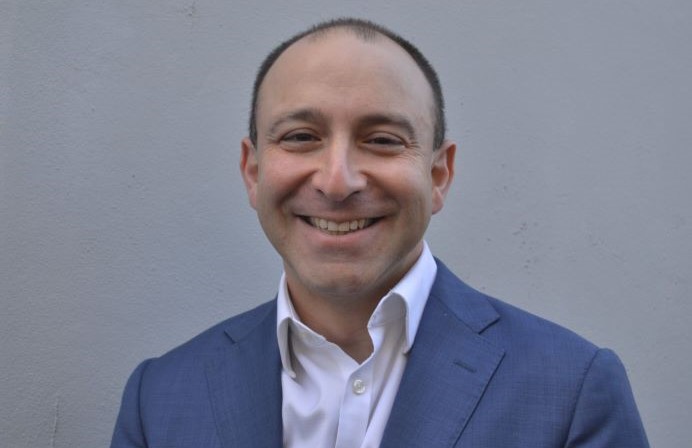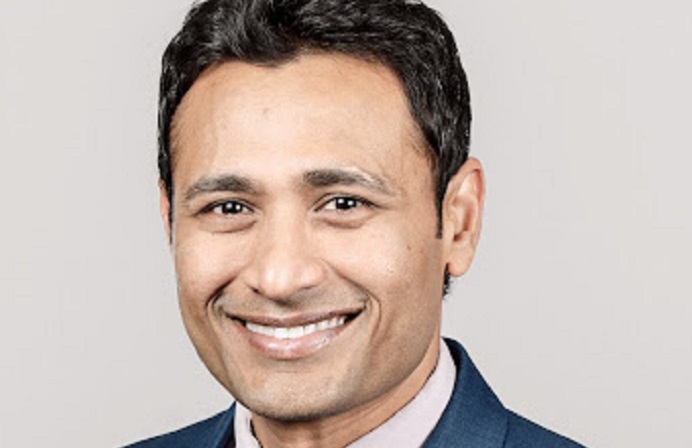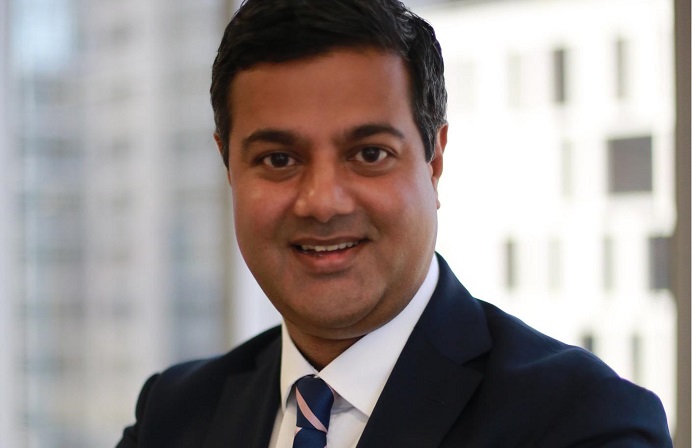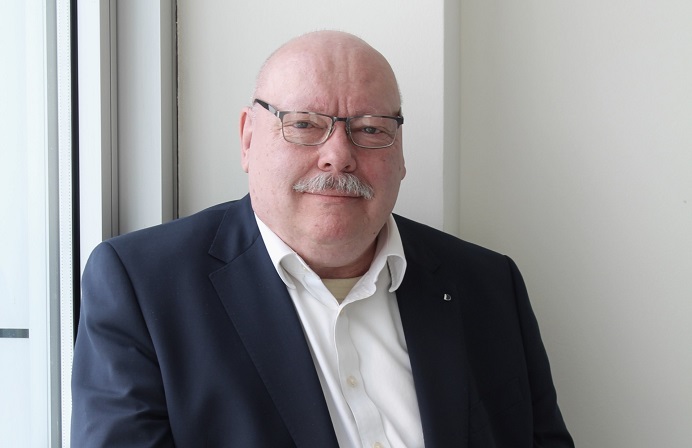
There are some parts of the legacy bank you just can’t fix by doing patches and workarounds. My view is that you just need to throw it away and start again. We had the great privilege of having a blank sheet to design a bank from the ground up.
In 2017, Simon Beitz, then Suncorp innovation chief, saw – in what is still an overwhelmingly big four-dominated banking market – not a small niche but a limitless canvass to reinvent Australia’s banking landscape. Customers, he discovered in his research, weren’t looking for reinvention from the old guard; they were demanding something entirely new.
Founded by Beitz and fellow Suncorp exec Craig Fenwick in 2018, the digital-only (and still standalone) Alex Bank, is fast emerging as a feature-rich banking and lending alternative – an alternative not only to fellow neobanks, but indeed to Australia’s banking majors.
We spoke to Alex chief executive Simon Beitz, shortly after the neobank secured its restricted banking licence, exploring how Alex has avoided the fatal operational pitfalls that have befallen some of its digital-only banking contemporaries, the innovation bounty sprouting from its ‘Alex Intelligence’ platform, its early steps into product tailoring and customisation, and its road ahead to a fast-tracked full ADI licence.
FST Media: You’ve come from Suncorp, a major player in Australia’s financial services sector, to lead start-up Alex Bank. What inspired your move into the neobanking and neolending space?
Beitz: Suncorp’s a fantastic company, I’m still very fond of it. In my 13 years there, I was lucky to work and move across several areas of the business, as leaders often are. In addition to my time at Suncorp, I also co-founded EML Payments back in 2003.
In my last role as head of innovation at Suncorp, between 2016 and 2017, we were doing some work on the future insurance and the future of banking. It became obvious to myself and Craig Fenwick, my fellow Alex co-founder who also worked with me in Suncorp’s innovation space, that there was a huge opportunity – both in insurance and banking – for new players. We’d also noted, through work we’d done with customers, that they were looking for new players in the financial services market. They weren’t just looking for large existing incumbents to reinvent themselves, but rather new brands that represented different things.
FST Media: Are there particular skills or insights gained from your experience at a traditional, brick-and-mortar FSI that have guided you in the development of the digital-only Alex?
Beitz: Craig and I left Suncorp in December 2017 and registered Alex, as it’s known today, in July of 2018. During our time at Suncorp, we ran most parts of small business and also retail banking operations. So, it’s not just in the innovation space, but it’s the skills between our 20-year career at Suncorp that have enabled us to understand how we could build a bank from scratch.
There are some parts of the legacy bank you just can’t fix by doing patches and workarounds.
My view is that you just need to throw it away and start again. We had the great privilege of having a blank sheet to design a bank from the ground up, which is what we were able to do.
Today we’ve got around 40 people at Alex, so there’s a lot of people who can take credit for building the bank, not just Craig and myself.
FST Media: On the road to securing your restricted banking licence, or rADI, Alex has largely been focused on lending. What was the strategy behind this?
Beitz: We said to APRA, from the first day we met them to explore the opportunity of a banking licence, that we would be a lending-led bank rather than a neolender. Alex was always built to become a bank; we just wanted to be lending-led, because, of course, that’s how you make money in banking.
We are the first new digital bank that, in the retail space, has the ability to offer lending and take deposits at the time of being licenced.
Our strategy was to ensure our core systems were built today and be able to offer those products right away. We in fact got our credit licence a lot earlier than the rADI. (We’d anticipated our rADI coming before Covid, but then, of course, APRA gave notice that it was suspending banking licences until they worked out the effects of the pandemic). We saw in the consumer and personal lending a huge whitespace. Customers in this space were not only underserved but also often took the wrong products because what they were looking for either wasn’t made available to them by lenders or they were pushed into different products.
When we did the research, we found that a lot of banks had rationalised products; two main consumer products they were selling were credit cards or mortgages – and then, of course, drawdowns on mortgages for other products. They’re easy products to set because, once the credit is done, it’s almost set and forget. What we found when establishing Alex – and we surveyed more than 1,500 customers – was a concern that some simple financial tools were no longer available to them.
Customers have a need for some of those more traditional products that the banks have decided were too hard or didn’t make sense.
The personal lending space is a huge opportunity. Prime bank-quality consumer lending in this country is a $115 billion market, so there’s a lot of wide space because people have retreated there.
FST Media: So how does Alex stand out from the pack?
Beitz: It’s quite a lonely space we’re in at the moment. There was a lot of talk initially around new banks and new entrants: Xinja’s now obviously exited the market, 86 400 has been acquired by NAB – that might be a great outcome for their shareholders, but sadly, it’s not a great outcome for customers.
We know, as much as they try, large banks do quite a good job of stifling the companies they buy, so it won’t take long before the great work that the 86 400 team has done gets stifled or snuffed out by National Australia Bank.
There’s a cohort of customers that are asked, ‘Who’s really genuine about helping customers and removing friction?’ And that’s one of the things we’re able to prove in our personal loan product that we’ve built. What people really like about us is that we’ve solved the whole straight-through processing issue. For instance, starting with a personal loan product, we’ve worked out how to identify a customer that’s not in front of us through liveness testing and validation through a variety of different data points. We can validate that it’s responsible lending through other data points – using both our data sources and our partners’ – to ensure customers are making an informed credit decision, which is all done through our Alex Intelligence System. The customer can apply today in three minutes and we can make a decision in three seconds. In fact, customers that are declined are declined pretty much straight away; those approved, with our people double-checking the algorithms in the background, are done so in about 15 minutes.
Towards the end of this calendar year, around 60 per cent of our decisions will be automated through our systems, so they’ll know within three seconds of an approval.
And through these funding rails we’ve got access to now, the loans, as we speak, can be completed in three hours.
Compared to some of the other banks where it could take up to 10 days to collect an application, make a credit decision, and make a facility available to draw down, it’s a very quick proposition. That whole straight-through processing will also extend into other products as well, including products for our SME, or micro-business (which constitute around two million entities in Australia) customers.
FST Media: Indeed, looking at some of your fallen compatriots in the neobanking space, as you mentioned, it’s clear now that their operating model was not sustainable over the long term. What makes Alex a sound, long-term prospect?
Beitz: Why we’re successful and why we’ve got a product in market where others have failed is our focus on execution excellence. Everyone here at Alex is focused on executing and making sure we do what we say we do. Our shareholders continually give us great feedback to deliver on our promises, and we’ve always been focused on execution. That’s easy to say, but if you can do that as a company, that gives you a really special power. And that’s one of the things I’m very proud of as a CEO of Alex Bank, that the team does get in and get stuff done.
To have a savings product and a personal loan product built in the system at the time of getting a restricted banking licence, it’s huge. No other bank that’s gone through the rADI framework has had that right.
That’s definitely part of our secret sauce.
FST Media: Upon securing your rADI in July, Alex announced it would pursue its unrestricted bank licence by the end of this year. Is this still the goal?
Beitz: We want to get through that process as quickly as possible. Restricted ADIs have a validity of up to two years; we want to rocket through this qualification process for a full banking licence as quickly as possible. If you look at the revised framework that APRA released, Alex is well advanced through these requirements to move from a restricted ADI to an ADI. While the decision rests with APRA, our focus is certainly to move through that as quickly as possible.
FST Media: To your Alex intelligence platform, which leverages AI and automation to expedite decisioning. How are you looking to advance this platform and further leverage technology to enhance your offering?
Beitz: This is an area we’re quite passionate about, and we’re continuing to develop Alex Intelligence. It’s more algorithms at this stage than pure AI – something I’d consider common to most large organisations.
Our priority is to build out algorithms over time to become AI, helping us make smarter, more informed decisions. A key reason for this is because traditional credit scores haven’t had a whole lot of work done to advance them. Currently, they offer more of a point-in-time view of someone’s credit activity, which doesn’t allow for real risk-based decisioning based on different behaviours. What we’ve been able to do is introduce different datasets, which may help us understand that, for instance, Patrick’s credit score is increasing, and therefore he should get a better price based on this higher credit score, or there may be some challenges in his credit and his credit score may be decreasing and we should therefore price hum differently.
At Alex, we believe that we should do personalised pricing for customers and pass on savings to customers to reward good behaviour.
FST Media: So is Alex exploring the potential of further personalisation or customisation of loans and other banking services?
Beitz: We are. It’s early days, but somewhere we want to navigate. One of the most important of the ‘four Cs’ in credit is character. The increasing pace of transactions and centralisation of credit services has meant that we’re not understanding or meeting the customer like we used to; it’s very difficult for institutions to make a character assessment of someone they haven’t met. Centralisation has meant that banks’ old character assessments have disappeared.
At Alex, we’re looking for different data points to help inform on all Cs of credit – capacity, collateral, covenants and character – to make sure that we can make better assessments and decisions.
FST Media: What does the optimal customer experience look like to you?
Beitz: For me, we keep listening to customers. Of course, a lot of people say that, but I’m not so sure I believe them. We do talk to our customers as well as our competitors’ customers.
Interestingly, the research we did show that customers don’t necessarily see banks being at the forefront of most of their decisions – if any of them.
Banks need to ensure they help the customer or inform them, whether they can make the decision quickly or not, and do so in the background.
At Alex, we talk about making banking faster, simpler, fairer. And we want to make it clear that we’re both human and artificially intelligent. But it’s about saying if, say, Patrick wants to buy something, he doesn’t want to wait 10 days for the bank to say, ‘Yes, I can‘ or ‘No, I can’t’. He wants to know that he can buy it, with confidence, as quickly as possible.
We’ve had a number of our customers say, ‘Wow, you’ve approved that a lot quicker than we thought, and we’ve got the money quicker than we’d have expected!’, with many conditioned to the old style of timelines. It’s about us putting the bank close, but in the background of the customers rather than the forefront, where they’ve previously positioned themselves.
FST Media: Alex makes for a unique brand name for a bank. Why was Alex your chosen moniker, and how does it define you as a financial institution?
Beitz: That’s a really interesting question, because it’s something that defines us, and indeed defines our character, as a financial institution. Through customer research, we’ve noted that many 18 to 36-year-olds have taken a view that they can’t identify with the big bank brands or they associate them with challenges caused for their parents in the past. There’s a mismatch between younger adults coming through and what they’re looking to identify themselves with.
We looked at Alex a bit differently. We said, ‘Well, if we’re about being faster, fairer, simpler and more human, how do we bring that into our brand and bring more humanity into it?’ That’s where the name, Alex, was born.
Curiously, we also found a whole lot of research that said no one had had a bad interaction with an Alex.
If we look at insurance, for example, it’s seen as a grudge purchase for customers. In resetting that customer experience, those emotions and experiences, we asked, ‘How do we start off with people on neutral ground?’ We began with the name and said, ‘Okay, let’s not be more traditional like a typical bank or an insurance-type name and make it something that comes from a more neutral or friendly place.’
Alex will continue to be shaped, but it’s a name that we hope will be able to stand on its own – it’s not ‘misspelt’, like some of the trendier names that customers struggle to find, it’s short, and it’s memorable. ◼





